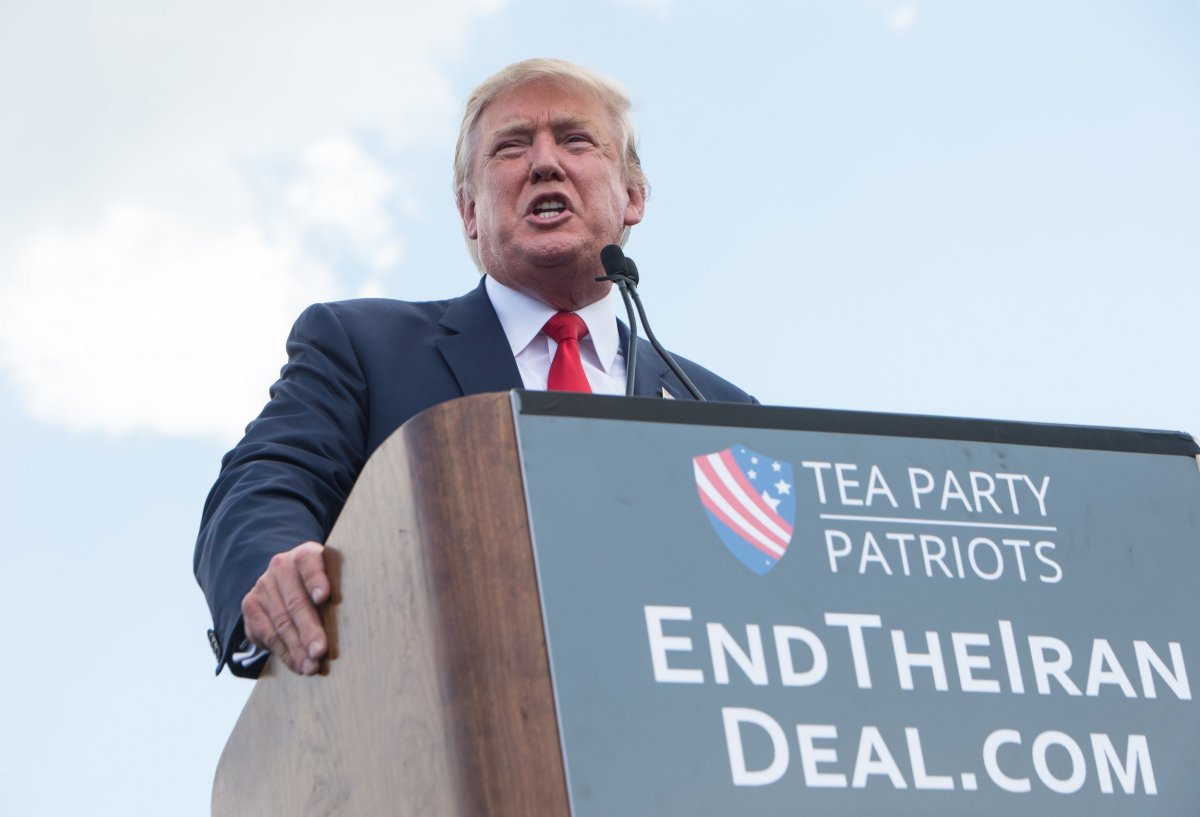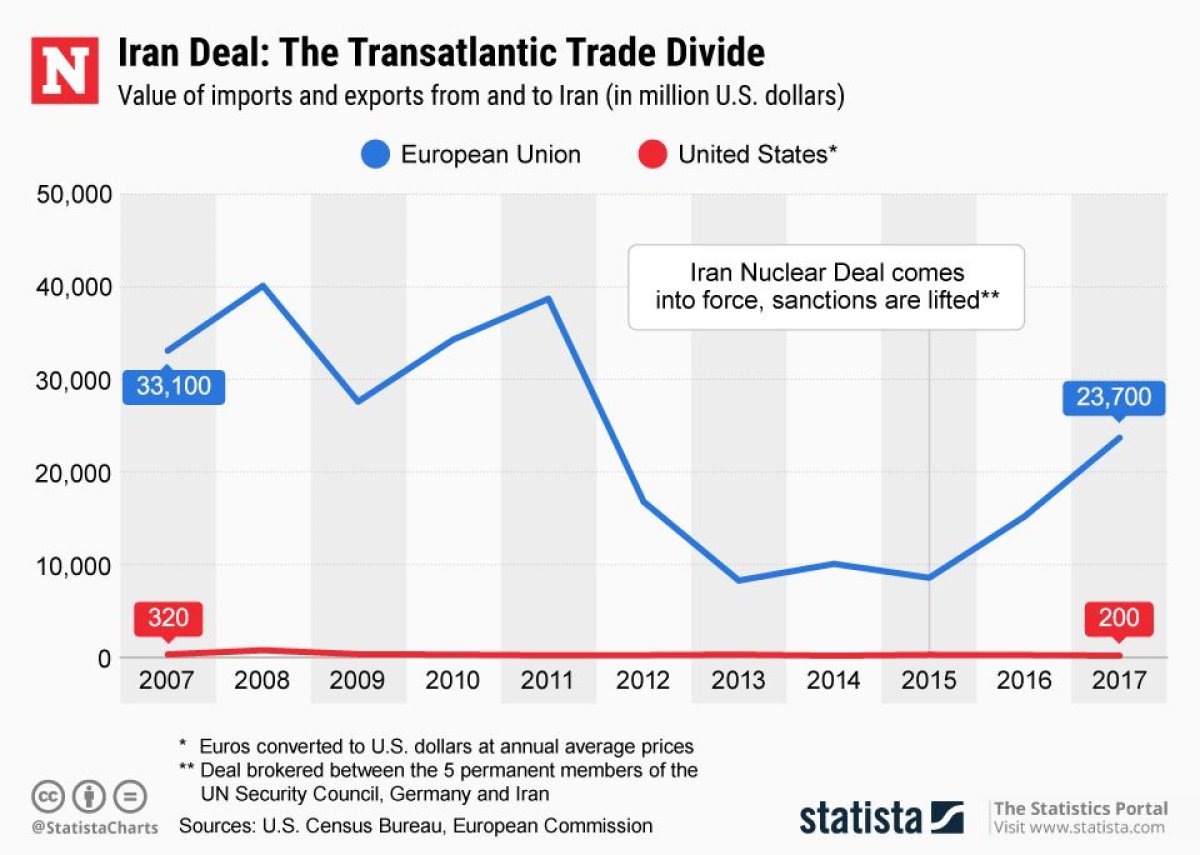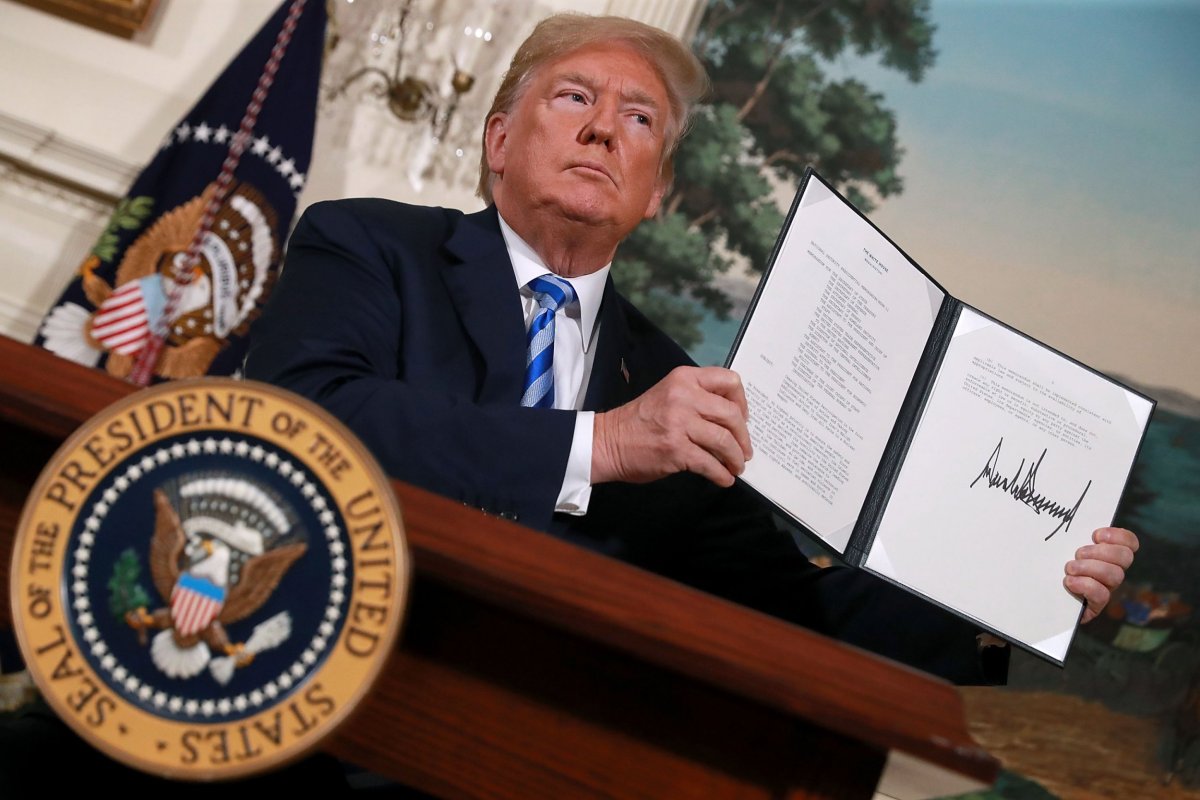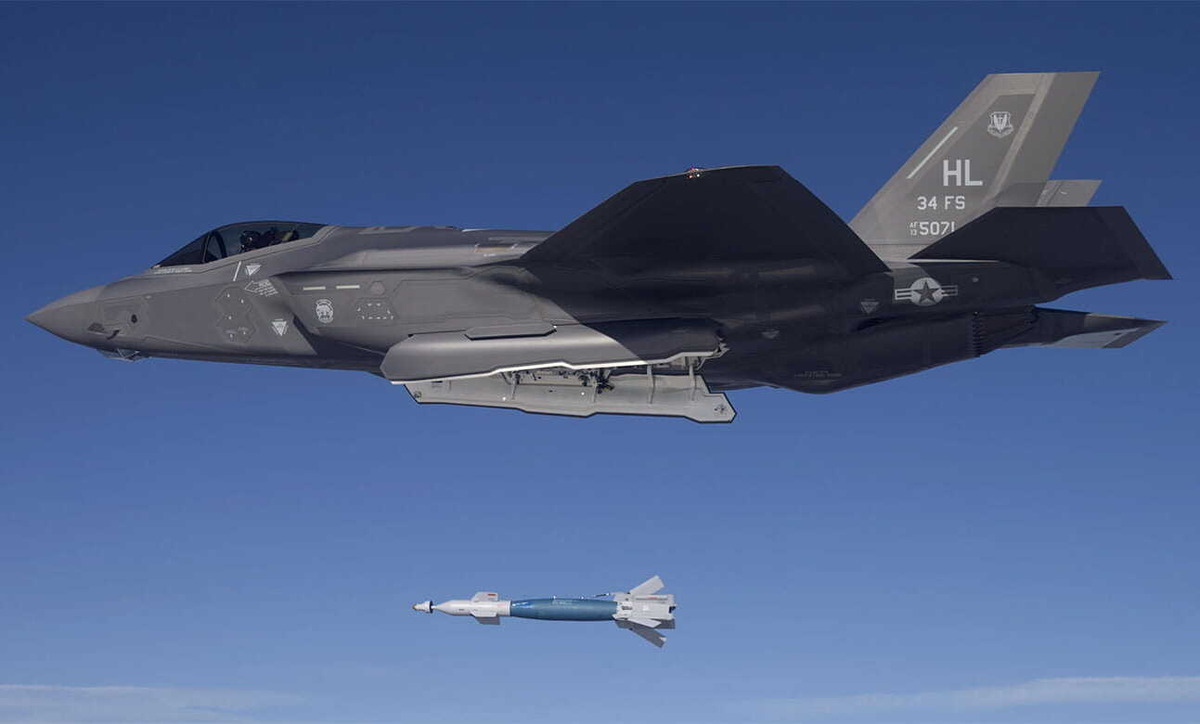In the battle over the Iran nuclear deal, the "nixers," as opposed to the "fixers," won. Four days before a May 12 deadline he himself had set, Donald Trump junked the agreement. Trump, as he said over and over during his campaign, viewed Barack Obama's deal with Tehran—his signature foreign policy achievement, negotiated with five other countries—as a "disaster," and "the worst deal ever." Now it is, from Washington's perspective, a dead letter.
The U.S. allies who signed the deal, Great Britain, France, and Germany, issued a statement saying they were disappointed in the decision, even though the president had telegraphed it to all three in the weeks leading up to it. They also pledged to remain in the deal with Iran—but that, most likely, was rhetoric designed for the home front. Trump's decision paves the way for the snapback of sanctions against Iran in two stages. In 90 days, key sectors of Tehran's economy, finance and auto industry will again have sanctions applied, and in 180 days its energy industry—the country's main economic lifeline—will again be targeted.

Critically, it is likely that "secondary sanctions" will also be enforced against any foreign companies doing business in the proscribed sectors. That hits Europe most. "They are now between an Iranian rock and a Trumpian hard place," says Mark Dubowitz, chief executive officer of the Foundation for the Defense of Democracies, a Washington-based think tank, who just spent two weeks in Europe discussing the deal with U.S. allies. Dubowitz predicted that most European companies would now decline to do business with Iran, leaving only Beijing and Moscow—the other two signatories to the deal.

Source: Statista.com
The president's decision ended what had become a fierce debate within the administration. One camp wanted the U.S. to stay in the deal (known formally as the Joint Comprehensive Plan of Action, or JCPOA) and try to "fix'' it, mainly by getting Britain, France and Germany to present Tehran with a series of tough new terms in hope of amending it. This camp included Defense Secretary James Mattis, who has said the 2015 agreement was flawed but still worth sticking to. The "fixers" were said to have made progress in recent weeks in getting the Europeans to agree that an amended deal needed to address Iran's ballistic missile program and its malign influence in the region. "They were 95 percent there," says Dubowitz, but agreement foundered on the issue of sunset clauses—specifically the idea that sanctions would automatically be reimposed if it was suspected that Iran had moved to within one year of a nuclear breakout.
But the addition of John Bolton as the new national security adviser, as well as Mike Pompeo's move from CIA director to secretary of state, significantly bolstered the ranks of those opposed to the deal—which reinforced Trump's own instincts. (The men they replaced, Lieutenant General H.R. McMaster and Rex Tillerson, respectively, had both wanted to stay in if possible.)
The White House moved quickly to push back against the criticism it anticipated—and immediately got—from former Obama administration officials and much of the mainstream press. Obama himself led the "big mistake" chorus, issuing a lengthy statement bashing Trump for the decision.
The standard critique put forth by those who backed the deal is that pulling out will once again present the U.S. with the prospect, sooner rather than later, of taking military action should Tehran rush to build a bomb in the wake of the U.S. decision. That's a reprise of the talking point throughout the negotiations that the only alternative to the Iran deal would ultimately be war.

The Trump administration doesn't buy that. First, it doesn't think Tehran will race to build a bomb, because the country is interested in eventually basing its nuclear program on more sophisticated centrifuges than it currently has—and which, in time, it would be allowed to develop under the JCPOA's sunset provisions. Don't take their word for it, Trump officials say: Ask Ali Akbar Salehi, the overseer of Iran's nuclear program. "According to the JCPOA, we have kept our nuclear program in accordance with our needs and requirements for [carrying out] research and development," he said in an interview in Farsi after the deal was cut in 2015.
The administration further believes that adherence to the deal was actually preventing the U.S. and its allies from confronting Iran in the region more forcefully. And they found Obama's assertion that "our ability to confront Iran's destabilizing behavior is strengthened with the JCPOA and weakened without it" particularly risible. In their view, a half-million people dead in Iran's client state, Syria, reveals Obama's reluctance to confront Tehran's bad behavior. Further, they are not persuaded that pulling the U.S. out of the deal will lead to a crisis with America's key allies in Europe. They believe that the Europeans and, ultimately, the Iranians, will come back to the deal.
Still, there was a fair bit of irony in the arguments underpinning Trump's announcement: Is he really going to confront Iran in the places it's making trouble? The evidence in support of that to date is two discrete bomb strikes in response to chemical weapons use in Syria. Trump is at heart an isolationist. But moving forward now will require multifaceted diplomacy. The challenge: Keep the allies together, lure Iran back to the table to negotiate a far more restrictive (from Tehran's perspective) deal, and make it clear to the mullahs that Iran will pay a severe price, not just economically but, if necessary, militarily if they don't come back.
That's a very tall order for someone who wants to be entangled in the Middle East about as much as Obama did. Which is to say, he doesn't. Or, at least, didn't. But Trump is now back in, and there may be plenty of need for fixers ahead.
Uncommon Knowledge
Newsweek is committed to challenging conventional wisdom and finding connections in the search for common ground.
Newsweek is committed to challenging conventional wisdom and finding connections in the search for common ground.
About the writer
To read how Newsweek uses AI as a newsroom tool, Click here.








